IRL Members
Advice and Information
As an individual member of IRL you can access advice and information on any local or national rural issue you may have from our staff. A quarterly e-newsletter is distributed to all members to keep you up to date on the work done over that quarter. Copies of press releases, reports and other publications are distributed to members. We also keep our members up to date on Government policies and strategies relative to rural development and available services in rural areas. This is all done through email, website and social media.
Become Part of a Network
Irish Rural Link encourages its various members to form single issue networks under the umbrella of the organisation. If an individual or a group of individuals have a particular concern or issue, they can form a network or join one of the existing networks established under IRL. This gives a more collective voice on certain issues and helps individuals to share their experiences and ideas for solutions to these issues and proposing these solutions to Government and policy makers.
Advocacy Work
One of the key roles of Irish Rural Link is to advocate for sustainable rural communities especially for marginalised and disadvantaged communities. By engaging with our members we are able to get updates from our members on what the current issues they are experiencing and the opportunities they feel are available for people living in rural areas and how these can be leveraged. This would then feed into our advocacy work and propose these solutions to Government and policy makers.
Inform Policy
As a member of Irish Rural Link you can keep us informed on rural issues in your local area. We engage with our members through surveys and meetings to inform submissions, research and other publications. Individuals can contact Irish Rural Link anytime to inform us of any issues they may have in their local community or area. These issues can form part of submissions we make and raise awareness of them with Government or media.
Community Groups & Organisations
Irish Rural link has a thriving membership and directly represents over 600 community groups throughout Ireland. By becoming a member of Irish Rural Link, community groups ensure their concerns are represented at National and European level. Members are provided with the opportunity to shape future rural policies and influence decision makers ensuring their voice is heard. As a member you can become involved in a number of ways, for example keeping us informed of local rural issues, supporting us with your membership fees or by assisting IRL in informing policy submissions. Community groups/ organisation have the opportunity to access a comprehensive collection of resource fact sheets and publications with up to date information on good community development practice, governance, management, finance and communications.
Individuals
Irish Rural Link is an important conduit for individuals to ensure your concerns regarding Irish rural communities are represented at National and European level. By becoming a member of Irish Rural Link you join a thriving membership, which is vital when it comes to presenting rural policy before various policy makers and organisations, including the Government. Irish Rural Link’s represents you by highlighting problems, advocating appropriate policies, sharing experiences and examples of good practice. As a member of Irish Rural Link you also have the opportunity to inform various policies that impact on rural communities and rural life. We keep our members up to date with work with are doing – projects, advocacy work and training.
Corporates
Our Team have vast experience in advocacy, negotiations and lobbying at local, National and European level. We are recognised as skilled influencers and an organisation who will always endeavour to find a solution to the problem and as a result IRL represents rural Ireland on many National and European platforms influencing policy. We are specialists in public and stakeholder engagement and provide Government Departments, Agencies, Organisations and Corporates with “real” consultation through our participative approach reaching out to the most difficult to reach communities through our broad and inclusive network.
Public and Stakeholder Engagement
We design and deliver bespoke public and stakeholder engagement and consultation services. We use a range of methods including digital, town hall meetings and face-to-face tools to provide multi-channel approaches to formal consultations, in addition to community engagement and deliberative dialogue approaches on more complex issues.
We engage with people as citizens, customers, service users and stakeholders. Our work opens up insights into their attitudes, experiences and expectations, and highlights the drivers and values that inform these. We are a trusted intermediary and take an independent approach to monitoring, analysing and reporting on engagement supporting our clients to use the findings to inform their decision-making.
Our design-led approach is particularly valuable for public and stakeholder dialogue projects. It’s important to understand the landscape in which a dialogue takes place and design a process and materials that will enable the public or stakeholders to get to the heart of the issues and the project achieve its objectives. Irish Rural Link’s team are specialised in community and stakeholder engagement and have a proven track record in the delivery of National projects some of which are outlined above.
SEAI
COMMUNITY ENGAGEMENT ON SEAI’S DEEP RETROFIT PILOT PROGRAMME
In Spring of 2018 the Sustainable Energy Authority of Ireland (SEAI), supported by the Department of Communications Climate Action and Environment (DCCAE) contracted IRL to carry out community and stakeholder engagement in the Midlands and East Galway to raise awareness of the energy efficiency measures and financial assistance available to the general public under SEAI’s Deep Retrofit Pilot Programme.
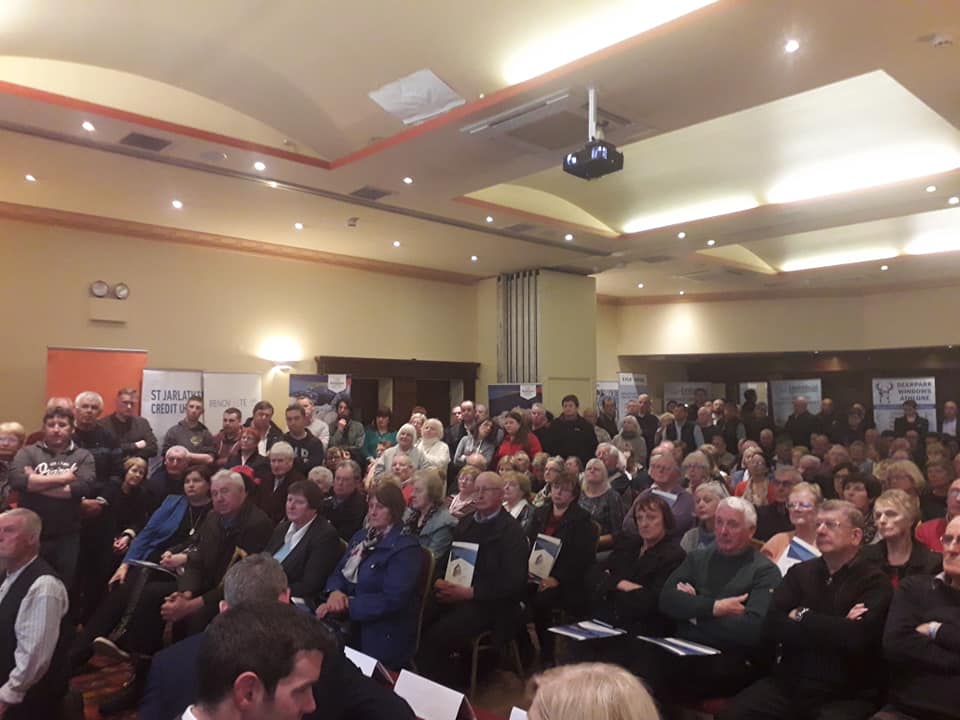
SEAI plays a lead role in transforming Ireland into a society based on sustainable energy structures, technologies and practices. Central to its objectives is the implementation of strong energy efficiency measures and supporting the transition to a low-carbon future. Housing continues to pose one of the greatest energy efficiency challenges in Ireland, with a considerable portion of older housings performing poorly in comparison to newer homes built to current standards. In 2017, SEAI launched a multi-annual pilot programme to inform key elements of a future programme to deliver large scale deep retrofit throughout Ireland. The aim of the Deep Retrofit Pilot Programme is to investigate the challenges and opportunities of deep retrofit and the learnings from these pilots will shape and inform SEAI’s approach towards a large scale deep retrofit of buildings, with the initial focus on the residential market. An integral part of these investigations involved focused community engagement and hosting public information events.
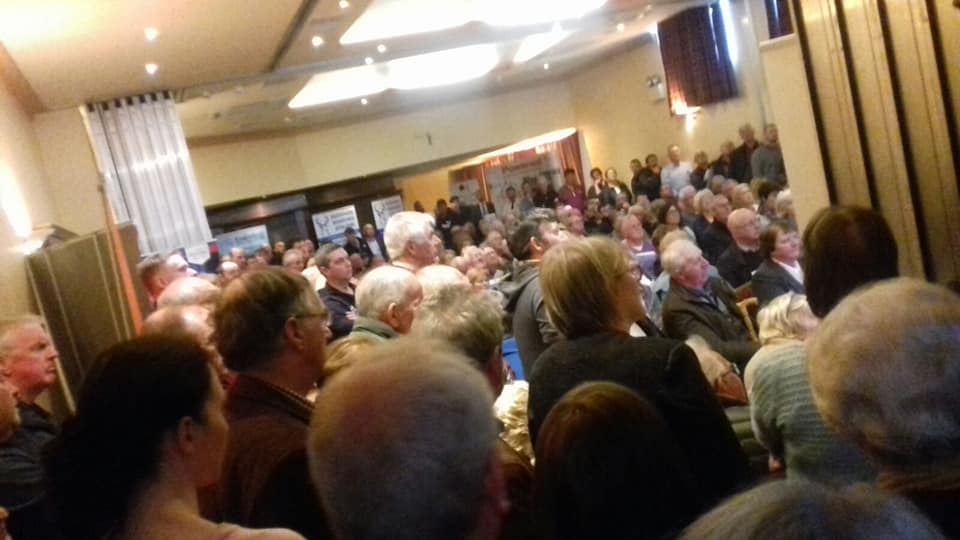
METHODOLGY
IRL carried out background research prior to deciding on the best methodology to apply. Taking into account various demographics such as geography, population and age profile it was decided that the most effective approach to maximize our reach was to utilize the more traditional methods of client engagement and communication strategies. IRL engaged local champions who used a client-centered approach using existing infrastructure such as community and voluntary organization, sporting organisations, farming organisations, key local activists in addition to IRL membership organisations and engaged on a one-to-one basis or one-to-few basis to provide information. Public information events were organised in both regions which were attended by the Minister and Minister of State in DCCAE with suppliers from the industry showcasing, presenting and providing one to one advice to members of the public.
IMPACT
IRL engaged an audience who had not previously engaged with SEAI raising awareness of a range of SEAI offerings and provided information, guidance and assistance to assist clients in their decision making process. The insights report which we provided will assist in shaping future programmes and strategic plans.
EIRGRID
EIRCODE COMMUNITY OUTREACH PROGRAMME
In 2013, the Department of Communications, Energy and Natural Resources awarded the license for rolling out Ireland’s first postcode system to Capita plc. The postcode was known as an Eircode, and Capita established a new firm called Eircode to develop and run the system. Based on the Department’s prior experience with a Community Outreach communications programme for the switchover from analogue to digital television in 2012 (which had been devised and delivered by the consortium of The Wheel and Irish Rural Link), the Department agreed with Capita/Eircode that The Wheel, in conjunction with Irish Rural Link, would be engaged to develop and run a Community Outreach programme that would underpin the mainstream national communications campaign.
The ‘Eircode Community Outreach Programme’ was to reach vulnerable people / households who might not be reached by the general public awareness campaign, during the launch phase of Ireland’s new postcode system, named ‘Eircode’. The Eircode Community Outreach Programme was based on a creative and innovative use of existing non-profit sector infrastructure to reach the target audience and 23x local community or development organisations were recruited to take on the role of ‘Eircode Assistant’. Irish Rural Link played a key leadership role in the Department’s own over-arching Eircode launch Steering Group, through Seamus Boland’s membership of that group. The direct line-management of the 23x ‘Eircode Assistants’ was the responsibility of Irish Rural Link.
PUBLIC CONSULTATION ON IRELAND’S FUTURE ENERGY POLICY
Following the launch of the Department of Communications, Energy& Natural Resources’ Green Paper on Energy Policy in May 2014, the Department committed to a series of public consultations so that the management of these challenges is based on a sound knowledge of the needs of people and their communities. Irish Rural Link facilitated and coordinated 4 Public Consultation on Ireland’s Future Energy Policy on behalf of Department of Communications, Energy & Natural Resources. The purpose of this seminar was to engage with stakeholders and interested individuals on future energy requirements in Ireland.
IRL managed all of the logistics associated with the events, including liaising with the Department and local organisations to form an invitation list of interested parties, media promotion and compilation of a report on each seminar to DCENR.
Networks
Irish Rural Link encourages its various members to form single issue networks within the umbrella of the organisation. This allows each group to focus on the issues close to their everyday experience, without the overall worry of maintaining a National Network. New legislation has made it more difficult and costly for groups to set up as networks so by forming a network under the umbrella of IRL, it eliminates these difficulties.
It also allows rural communities to work as a united front when required and strengthens the representational power because of the larger membership
The Additional benefits to networks include:
- That we will support experts, who are knowledgeable about their area of interest.
- It allows the interest groups to participate at the heart of policy making and in that context bring greater integrity to the problems and opportunities that may materialise.
- The wider membership of IRL is also better informed and because of that is more likely to take into account the issues that affect rural communities.
- The agreed policy, because it is accepted by the wider rural family is more likely to be successful in terms of its influence.
Meals on Wheels
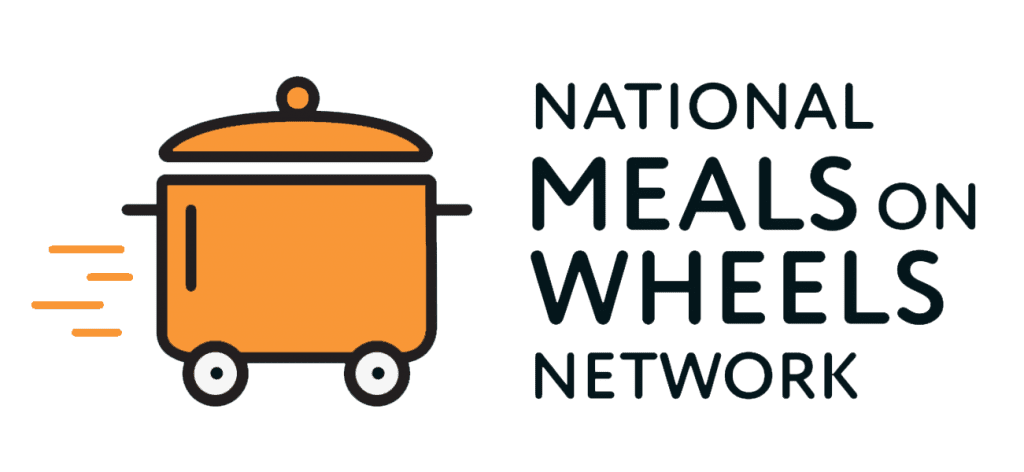
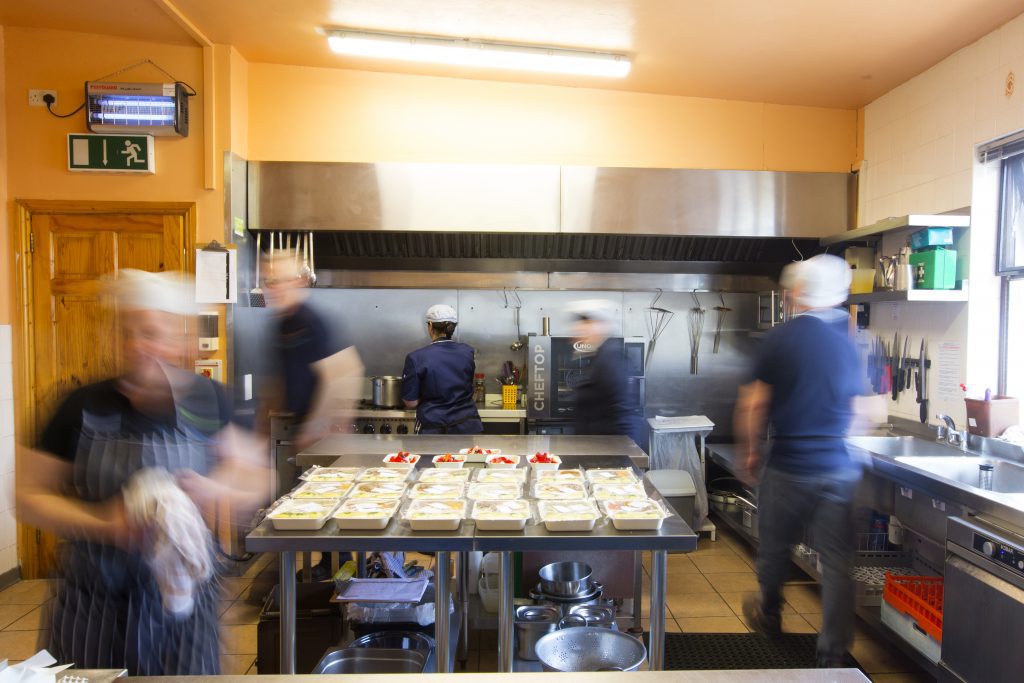
Under the umbrella of Irish Rural Link (IRL), the National Meals on Wheels Network was established in 2015. The overall aim of the network is to provide a local, community-led professional facility to assist people who require services to maintain optimum health, independence with strong life-extending possibilities.
VISION
Our vision is of a fully supported Meals on Wheels system providing community led services dedicated to meeting the nutritional and social needs of older and vulnerable people to enable them live independently.
OUR MISSION
The National Meals on Wheels Network, as the leading organisation, will provide funding opportunities, training, peer mentoring, research and advocacy support to empower local providers so they will provide nutritious meals, friendly visits, and safety checks that enable older and vulnerable people to live nourished lives with independence and dignity on an equitable basis all over Ireland.
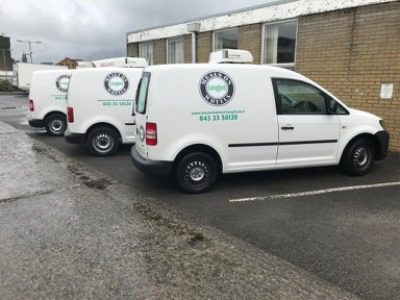
The objectives of the National Meals on Wheels Network include;
- To advocate for a national standardised meals on wheels service, which provides a system all organisations can adhere to.
- To ensure members have adequate resources to deliver a professionally produced nutritious meal to their clients. To advise and advocate the Government and other agencies which influence the delivery of meals on wheels and ancillary services.
- To meet the future demands of network members by assisting in the development of their services.
- To develop the organisation in a manner that is inclusive and participatory to all meals on wheels organisations.
- To develop a voluntary professional meals-on-wheels service to a high standard and to create a template that will be recognised and given a quality national rating.
RURAL TRANSPORT NETWORK
The Rural Transport Network (RTN) is the representative body of the 17 Transport Co-Ordination Units, CLASP Sligo (Community of Lough Arrow Social Project) and Comharchumann Chéire Teo – Cape Clear Islands Bus Service. These companies deliver a broad range of transport services under the Rural Transport Programme (RTP) on behalf of the National Transport Authority and Department of Transport, Tourism and Sport under the national brand – Local Link.
Local Link plays a vital role in delivering services in local areas, particularly in some of the most remote rural areas, providing a lifeline for many in terms of social inclusion and connectivity.

The service models provided by Local Link include;
• Scheduled Fixed Transport – These are high frequency services with a regular route, stopping places and timetables.
• Scheduled Flexible Transport – these operate to timetabled departures but can deviate from route to pick up/set down passengers closer to their destination.
• Demand Responsive – This is a door to door service responding to requests for services and operates by making specific trips to pick up and drop off passengers at their own door.
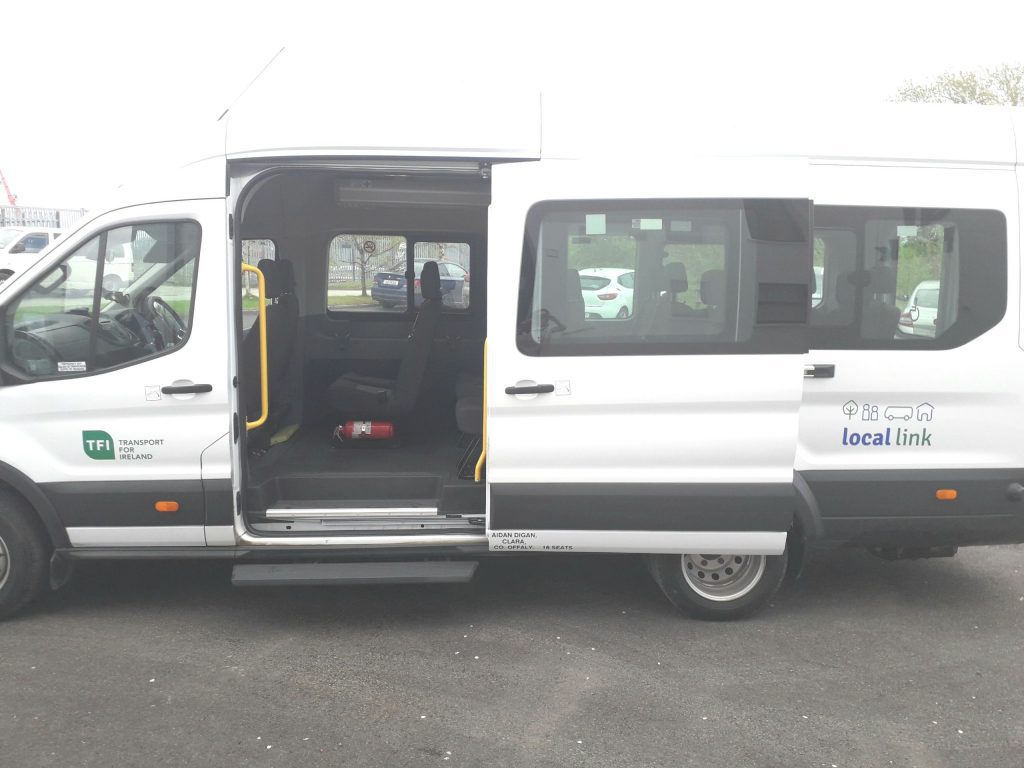
COMMUNITY WETLANDS FORUM
The Community Wetlands Forum (CWF) was established under the umbrella of Irish Rural Link in September 2013. The initiative came from community groups involved in wetland conservation who were developing the idea of wetlands as assets for their communities, as well as work undertaken by Irish Rural Link on behalf of communities affected by the Habitats Directive (92/43/EEC). Membership of CWF is open to community groups involved in wetland conservation, as well as other organisations and individual stakeholders who support the aims and objectives of CWF. The forum is also attended by representatives from Government Agencies and third level institutions.

The main aim of the CWF is to provide a representative platform for community-led wetland conservation groups based on the principles of community development namely empowerment; participation; inclusion; self-determination; and partnership.
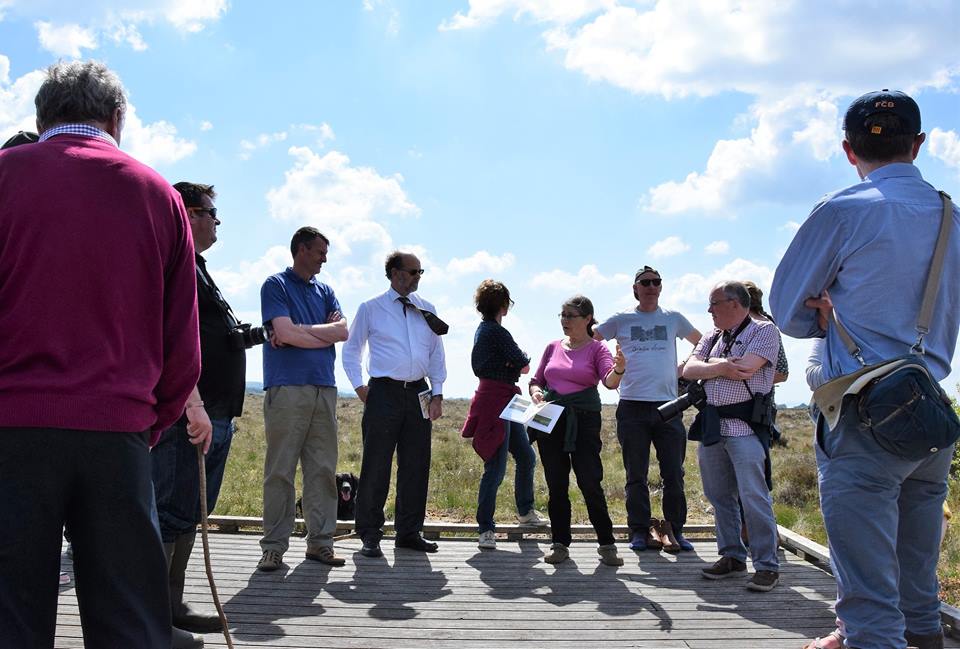
The rationale supporting a Wetlands Community Forum is based on the development of wetlands using the tools of community development as a means of ensuring that all actions taken have the full support of the community. It means that the community become engaged in acquiring a greater knowledge of the value of wetlands and can use this to their own benefit. It also means that the community become involved as early as possible and that the necessary local stakeholders are included. It also gives communities a sense of ownership over their local wetland/Peatland.
